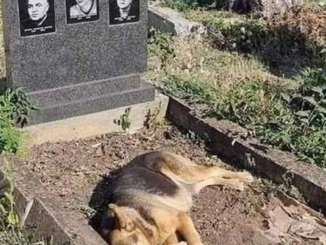Results indicated that not only can dogs detect Covid faster, but they can also do so in a non-intrusive manner – so no need to swab your throat or nose

Dogs can detect Covid-19 faster and more accurately than a PCR test, a new study shows.
Researchers looked at the ability of canines to recognise the virus and its variants, even when they are obscured by other viruses, like those from common colds and flu.
More than 400 scientists from over 30 countries contributed to the study as well as 147 scent dogs, according to the findings published in the Journal of Osteopathic Medicine.
After analysing many studies covering both field and clinical experiments, Professor Dickey and Junqueira found that dogs who are trained to sniff out scents are “as effective and often more effective” than antigen tests.
A total of 53 dogs were trained to sniff out Covid scents, while 37 were not and scientists found that the dogs that were not trained were in some cases “slightly superior” to those that were pre-trained.
“The previously untrained dogs have the advantage that they are not as prone to indicating on scents other than the Covid–19 associated scent,” the paper said.
The results indicated that not only can dogs detect Covid faster, but they can also do so in a non-intrusive manner. This means you won’t need to put a swab in your throat or nose.
How can dogs detect the virus?
This essentially comes down to the dog’s highly evolved nose with its ability to sense out smells quicker.
Dogs possess up to 300 million olfactory receptors in their noses, compared to about six million in humans. And the part of a dog’s brain that is devoted to analysing smells is about “40 times greater” than humans. Canines also have ‘neophilia’, which means they are attracted to new and interesting odours
And so, with all these enhancements, dogs can detect very low concentrations of odours associated with Covid infections.
“They can detect the equivalent of one drop of an odorous substance in 10.5 Olympic-sized swimming pools,” Professor Dickey said. “For perspective, this is about three orders of magnitude better than with scientific instrumentation.”
Scientists also found that in some cases, the animals were also able to detect the virus in pre-symptomatic and asymptomatic patients, “whose viral load was too low for conventional tests to work.”
Professor Dickey has said that dogs can also differentiate Covid and its different variants in the presence of other respiratory viruses. This included the common cold or flu.
“They’re much more effective. In fact, one of the authors that we quote in the paper commented that the RT-PCR test is not the gold standard anymore. It’s the dog. And they’re so quick,” he added. “They can give you the yes or no within seconds if they’re directly smelling you.”

How was the study conducted to see if dogs can really detect Covid-19?
In some studies, the dogs gave a person a quick sniff, sitting down to see if the person has Covid. In another study, the dog was given a sweat sample to smell for a few minutes.
The press release has said that scent dogs, such as beagles, basset hounds and coonhounds are the ideal candidates for sniffing out the virus, given their “natural tendencies to rely on odours to relate to the world.”
But the studies which the researchers analysed showed a variety of dogs were up for the challenge and were able to sniff out the Covid odour. With a few weeks of training, puppies, older dogs, purebred and mixed breeds, both male and female were able to sniff such odours out and “all performed admirably,” the Eureka Alert press release said.
Although there has been success with dogs detecting such viruses, researchers believe there are still many challenges with using dogs for medical diagnoses.
“There’s quite a bit of research, but it’s still considered by many as a kind of a curiosity,” said Professor Dickey.
In conclusion, Professor Dickey and Junqueira said after reviewing the studies, believe that scent dogs deserve “their place as a serious diagnostic methodology that could be particularly useful during future pandemics, potentially as part of rapid routine health screenings in public spaces.”
“Perhaps, most importantly, we argue that the impressive international quality and quantity of COVID scent dog research described in our paper for the first time, demonstrates that medical scent dogs are finally ready for a host of mainstream medical applications,” they added.
Lady Gaga Revealed a Sweet Reason Why She Chose to Go Makeup-Free on Glamorous Oscar Night
Lady Gaga is synonymous with glitz and glamour. From her meat dress to her other unconventional accessory choices, she knows how to always make a splash. Her song, “Hold My Hand,” from the soundtrack of Top Gun: Maverick was nominated for Best Original Song at the 2023 Oscars. This time around, her statement was about simplicity and natural beauty, as she performed her song in the most stripped-down public appearance yet.

Initially, because of being busy filming Folie à Deux, the sequel to the Joker film, Gaga couldn’t make the award ceremony and, by default, couldn’t perform her song. 3 days before the event, she texted the producers and said that even though she didn’t have time to put together a flamboyant performance, she did want to try something. Much to the fans’ amazement, she made a last-minute surprise appearance and left audiences in awe.
For the red carpet of the 95th Academy Awards which, starting this year, changed colors to beige, the House of Gucci star went for a full glamorous makeover and chose to wear a black Versace gown. The sheer corseted dress had a low-cut skirt and featured the famous Medusa logo of the world-renowned brand.

As she took the stage to perform her Oscar-nominated song, Lady Gaga ditched the glam makeover in favor of a makeup-free face, a black shirt, and ripped jeans paired with sneakers. According to the producers of the show, Gaga did this because she “wanted it to be raw and for people to see the real Gaga.”
The song “Hold My Hand” was written by Gaga in her studio basement, together with a friend. She said, “It’s deeply personal for me. I think we all need each other. We need a lot of love to walk through this life. And we all need a hero sometimes. But you might find that you can be your own hero, even if you feel broken instead.”
Her performance was met with a standing ovation inside the Dolby Theatre; watch below.
Preview photo credit Jordan Strauss/Invision/East News, Chris Pizzello/Invision/East News



Leave a Reply